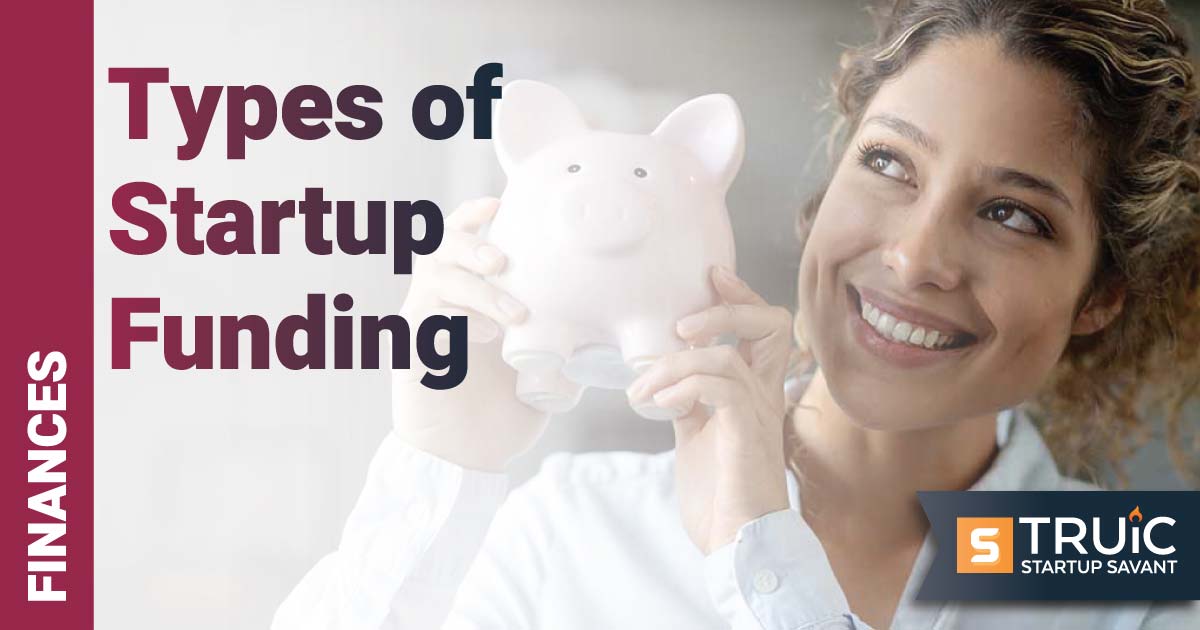What Is Seed Funding?

Last Updated: By Michaela Dale
To scale, startups need capital. Seed funding rounds are often the first round raised by many startups. This stage of funding is both exciting and pivotal – it can set the trajectory for a company's future.
Whether you're an aspiring entrepreneur, a potential investor, or simply curious about the startup world, this article will provide you with a clear and concise understanding of seed funding for startups.
Seed Funding Rounds Explained
Seed funding is when early-stage companies take on investment, typically by venture capitalists or angel investors. While some startups raise pre-seed funding as well, seed capital is commonly the first money raised by a startup.
Seed money is commonly used to build up the foundation of the company. This may include purchasing equipment, hiring staff, or renting office space. The seed round is centered around getting the startup off the ground.
On average, seed rounds are between $1 million and $2 million, though this can vary depending on the startup, investor, and many other factors.
Seed Funding vs. Pre-Seed Funding
Pre-seed funding is the earliest stage of startup financing, mainly aimed at developing an initial business idea or concept. It involves smaller amounts, often sourced from the founder's savings, friends and family, or angel investors. The focus is on research and developing a viable concept with flexible, informal investment terms.
Seed funding follows pre-seed, used for further developing a more established concept, creating a marketable product, and initial scaling efforts. It involves larger capital, typically from angel investors, venture capital firms, and accelerators. Startups at this stage have a clearer valuation, and investments are made for equity with more structured terms. Seed funding aims to prepare the startup for subsequent growth and investment rounds.
Seed Funding vs. Series Funding
Series funding (Series A, B, C, etc.) occurs in later stages after seed funding. Each "series" round is larger, meant to scale the company, expand market reach, develop new products, or even facilitate acquisitions. Series A, B, C, and beyond involve larger investments from venture capital firms, and each round comes with increased company valuation. The focus shifts from establishing viability to scaling and expanding the business.
When to Raise Seed Capital
Knowing the right time to raise a seed funding round is crucial. A company might be ready to raise a seed round if it shows the following signs. When these elements are in place, a startup is typically in a strong position to pitch to seed investors and has a higher chance of successfully raising a seed round:
- Developed a Minimum Viable Product (MVP): Having an MVP demonstrates that the startup has moved beyond the idea stage. It shows potential investors that there's a tangible product or service.
- Initial Market Traction: Evidence of market interest, such as user sign-ups, early sales, pilot programs, or strong customer feedback, indicates that the market is responding positively to the product.
- Validated Business Model: A clear understanding of how the company plans to make money, including pricing strategies, cost structures, and long-term profitability potential.
- Strong Team: A skilled and dedicated team with the necessary expertise to develop the product and grow the business is attractive to investors.
- Clear Use of Funds: A well-defined plan for how the seed funding will be used to achieve specific business objectives, such as product development, marketing, hiring, or further market research.
- Market Research and Validation: In-depth understanding of the target market, customer needs, and competition. This shows that the company is aware of its market environment and prepared to face challenges.
- Strong Network and Industry Connections: Connections with potential customers, partners, and industry insiders can be a sign of a startup's ability to navigate the market effectively.
- Financial Projections and Metrics: Demonstrating an understanding of key financial metrics and having realistic financial projections for the future can indicate readiness.
How to Raise Seed Money for Your Startup
The steps required to raise funding are different for every stage. There are a few important steps required for an early-stage startup to raise a seed round, such as refining the startup model and networking with potential seed investors.
1. Refine Your Business Model
To convince investors to provide seed funding for your startup, it's essential to have a more developed and tested business model. Show how your product or service has evolved since the early stages when the focus was concept and minimum viable product.
2. Demonstrate Traction
Unlike pre-seed, seed funding requires evidence of market traction. This could be early sales, user growth, significant partnerships, or positive customer feedback. Essentially, your startup needs to prove it is gaining momentum and validation from the market.
3. Develop a Detailed Plan
Before you can secure venture capital funding, you need to create detailed financial projections, including how the seed funding will be used to achieve specific milestones and how it leads to future growth. Plus, you should have a clear plan for using the funds to grow your business, including scaling operations, expanding the team, increasing sales and marketing efforts, and further product development funds will be used for.
4. Expand Your Network
Target investors who specialize in seed funding, such as larger angel investors, early-stage venture capitalists, and seed funding programs. Attend startup events and engage with entrepreneurial communities.
5. Enhance Your Pitch Deck
Pitch decks are essential for demonstrating your startup's value, traction, and fundability. Your pitch deck should reflect progress made since the pre-seed stage, showcasing market traction, a refined business model, and a clear path to profitability.
6. Network with Potential Investors
Reach out to potential venture capital investors or angel investors that align with your startup's mission. If you can get an introduction from another founder or contact, this will go a long way at this stage. Seed funding often involves negotiating with more experienced investors. Be prepared for thorough due diligence and more complex negotiations.
7. Negotiate Valuation and Terms
Seed rounds require careful consideration of company valuation. Be prepared for more sophisticated term sheets and possibly give up more equity than in pre-seed rounds.
8. Close the Round with Formal Legal Processes
Seed funding involves more formal legal processes. Ensure compliance with all legal and regulatory requirements and prepare for a more comprehensive due diligence process.
What to Do After You Raise a Seed Round
Once you've secured a seed round and you've started utilizing the funds for plans outlined before your raise, the next step is to consider future funding.
Use seed funding to reach key milestones that will make your startup attractive for Series A funding. This includes achieving product-market fit, growing your customer base, and demonstrating a sustainable growth model.
Additionally, you will need to consider future equity stakes for investors and the impact of dilution on your company.
Frequently Asked Questions
What is seed funding and how does it work?
Seed funding is a stage of investment secured by early-stage startups, typically after the business's concept has been proven and there is some initial traction. Seed funding is commonly equity financing, raised by seed investors such as venture capitalists or angel investors. This means that startups are not required to pay the investment back. Instead, the seed investor will take an equity stake in the company.
Is seed funding risky?
Seed funding is seen as a risky investment as the company is typically in its early stages. However, startups at this stage typically have low valuations, making this a potentially lucrative investment for a venture capitalist or angel investor.
What is the average amount of seed money?
Seed funding is typically between $1 million and $2 million. However, this ranges greatly depending on the startup, its traction, and the investors involved.


